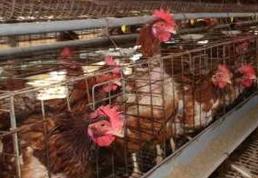McDonald’s exploring cage-free egg production

Seeking to buy eggs produced in a more humane way, McDonald’s has said that it would undertake a large-scale study involving tens of thousands of hens.
However, the Humane Society of the US said the study probably would delay any significant move by McDonald’s into the US cage-free egg market – a step some of its rivals have taken, reports the Los Angeles Times.
McDonald’s is teaming with one of its primary egg suppliers, Cargill Inc., and several animal welfare scientists to conduct a commercial-scale study of housing alternatives for hens, including cage-free and “enriched housing”. The latter involves cages, nests and perches for the birds. McDonald’s plans to use eggs produced during the study in its US restaurants and says the project will be producing eggs, including cage-free eggs, by 2011.
Joining McDonald’s and Cargill are researchers from Michigan State University; UC Davis; the American Veterinary Medical Assn.; the U.S. Department of Agriculture; the American Humane Assn.; and the Center for Food Integrity.
It is reported that the coalition of researchers will take a broad look at sustainable egg production, including examining environmental effects and worker welfare in hen houses.
“There’s a very compelling need for a study of this scope,” said Marie Wheatley, president and CEO, American Humane Association. “While scientists indicate there are benefits for laying hen birds to be able to demonstrate more natural behaviors associated with a cage-free environment, there are open questions on other animal welfare matters such as feather pecking and mortality rates.”
“Globally, McDonald’s supports cage and cage-free housing as long as they meet our animal welfare guiding principles,” said Bob Langert, McDonald’s vice president, Corporate Social Responsibility. “And, with the Coalition’s research, we will have science-based egg sustainability facts to guide our decisions towards promoting continuous improvement in these important areas.”
Currently, research on the design and infrastructure of the study has begun in conjunction with MSU and UC Davis. The timeline and costs are being determined, as well as standards for each housing type.
Dr Joy Mench, UC Davis, added, “This study will provide critical information that will allow us to better understand how laying hen behavior is accommodated in different housing systems, as well as how these environments affect other aspects of hen welfare.”
Concerns from HSUS
Paul Shapiro, head of the Humane Society’s factory-farming initiative, said that because the study will take 2 years to complete, McDonald’s will be kept from making the “same modest reforms its competitors have already adopted.”
Shapiro noted that Burger King, Hardee’s, Quizno’s, Carl’s Jr. and Denny’s have agreed to make cage-free eggs up to 5% of their US egg purchases.
McDonald’s has made no such commitment. But it said in a federal securities filing that it “supports the use by our suppliers of both cage and cage-free housing for egg-laying hens.”
The Humane Society has submitted a resolution to McDonald’s shareholders to adopt a policy mandating phased-in use of cage-free eggs. The measure is slated to be voted on at an upcoming annual meeting.
Source: Los Angeles Times, and PRNewswire












